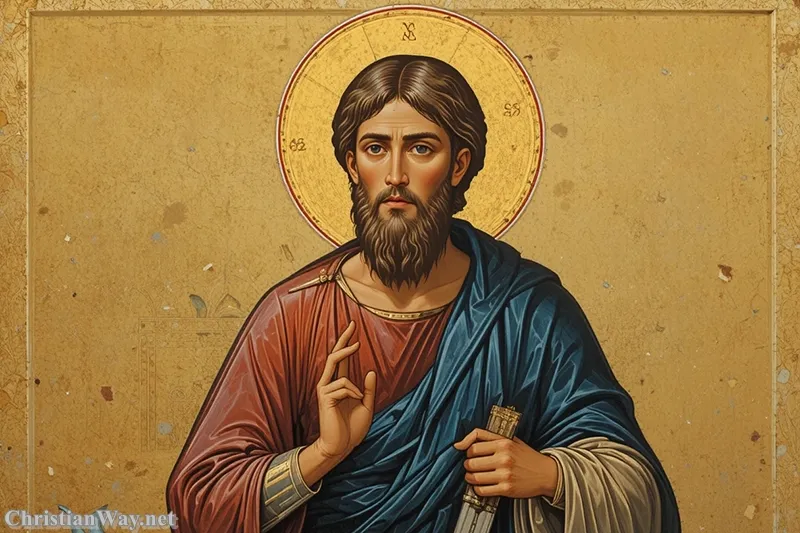Dear friends in Christ,
Every human heart, in its quiet moments, longs to know what is good — to live rightly, to love purely, to walk in peace. From the very beginning, God has not left us in confusion about what leads to true happiness. The Ten Commandments, given by God to Moses on Mount Sinai, are not a list of cold prohibitions; they are the language of divine love, the covenant words between God and His people. They reveal the heart of the Creator who desires not to control His children, but to set them free.
In every age, the Commandments remain a moral compass, pointing humanity toward communion with God and harmony with one another. Yet, in a world that often dismisses commandments as outdated or restrictive, we must look again — not as judges or rebels, but as seekers of truth — and hear within them the gentle voice of the Lord saying, “I am the Lord your God, who brought you out of the land of Egypt, out of the house of bondage” (Exodus 20:2).
The Ten Commandments are not chains; they are wings. They teach us how to love God and how to love our neighbor, and in doing so, they reveal what it truly means to be human.
The Commandments as Covenant, Not Contract
When God spoke the Ten Commandments, He was not giving Israel a mere code of conduct. He was entering into a covenant — a sacred relationship. The people of Israel had been freed from slavery, but freedom without direction is chaos. God, therefore, spoke these words as a Father, saying, “You are Mine. Walk in My ways, and you will live.”

The Commandments begin not with “You shall not,” but with “I am the Lord your God.” This is the foundation: relationship before rule. The Law flows from love, and obedience is the response of gratitude. To keep the Commandments, therefore, is not to earn God’s favor — it is to live within the embrace of His covenant love.
The First Tablet: Loving God Above All
1. “You shall have no other gods before Me.”
The first commandment calls us to worship the one true God. Idolatry is not only about bowing before statues — it is about allowing anything to take God’s place in our hearts. In modern life, idols can be wealth, success, relationships, or even our own ego. The human heart is a temple, and only God can dwell there without destroying it. To obey this commandment is to remember who God is — our origin, our meaning, and our end.
2. “You shall not make for yourself a graven image.”
This is not a rejection of art or beauty, but a warning against reducing the infinite God to something we can control or manipulate. Every idol — whether physical or ideological — is a distortion of truth. When we create God in our own image, we lose the mystery of His holiness. True faith bows before the invisible, all-holy Lord, who cannot be captured by our imagination or convenience.
3. “You shall not take the name of the Lord your God in vain.”
God’s Name is not a casual sound; it is sacred, carrying His presence. To misuse His Name — in anger, mockery, or deceit — is to dishonor the One who gave us life. Yet this commandment is also positive: it calls us to speak God’s Name with reverence, in prayer, praise, and truth. As Jesus taught, “Hallowed be Thy Name.”
4. “Remember the Sabbath day, to keep it holy.”
The Sabbath is a day of rest, but more profoundly, a day of trust. To rest in God’s presence is to confess that our worth is not in our work, and that creation itself depends on the Creator. For Christians, Sunday — the day of Christ’s Resurrection — is our Sabbath, the weekly celebration of new life. Keeping it holy means making space for worship, family, and peace — a rhythm that heals the soul in a restless world.
The Second Tablet: Loving Our Neighbor as Ourselves
5. “Honor your father and your mother.”
This commandment is the bridge between love of God and love of neighbor. It teaches gratitude and respect for the gift of life received through our parents. To honor them is to honor God’s creative love. It also extends to all legitimate authority — not blind obedience, but reverent respect for the order God has placed in the world. In a culture that prizes independence, this commandment reminds us that love begins in humility.
6. “You shall not kill.”
Every human life is sacred, because every person bears the image of God. This commandment defends that image. It forbids not only murder, but also hatred, revenge, and the quiet cruelty that kills the spirit of another. Jesus deepened this teaching when He said, “Whoever is angry with his brother will be liable to judgment.” To follow this commandment is to choose life — not merely biological survival, but the flourishing of love.
7. “You shall not commit adultery.”
The covenant between man and woman in marriage reflects God’s own faithful love. Adultery wounds that covenant, and by extension, the image of divine fidelity. Yet this commandment also speaks to the purity of heart that belongs to every disciple. Jesus said, “Blessed are the pure in heart, for they shall see God.” Chastity — in marriage or in single life — is not repression but freedom: the freedom to love truly, without using or being used.
8. “You shall not steal.”
The commandment to not steal is more than a prohibition of taking property; it is a call to respect the dignity of others. All we have is gift. To steal is to deny that gift and to place our will above justice. In a society driven by greed and consumption, this commandment challenges us to live simply, to share generously, and to seek fairness for all.
9. “You shall not bear false witness against your neighbor.”
Truth is the foundation of love. Lies destroy relationships and societies. To bear false witness is not only to misrepresent facts, but to betray trust. God is truth; when we lie, we turn away from Him. The Christian is called to speak truth in charity — to let our words be a reflection of God’s own faithfulness.
10. “You shall not covet your neighbor’s house or wife or goods.”
The final commandments go to the root of sin: the heart’s disordered desire. Covetousness begins in comparison, grows through envy, and ends in ingratitude. God calls us to contentment — not a dull resignation, but the joyful trust that He provides all we truly need. Gratitude transforms the heart, freeing it from the endless hunger for more.
The Commandments Fulfilled in Christ
When Jesus was asked which commandment was greatest, He replied, “You shall love the Lord your God with all your heart, and with all your soul, and with all your mind… and you shall love your neighbor as yourself” (Matthew 22:37–39). In those words, He did not abolish the Law; He fulfilled it. The Ten Commandments are summed up in love, and Christ Himself is that Love made flesh.
In the light of the Cross, every commandment becomes personal. We do not merely obey an external code — we follow a Person who has written the Law on our hearts through the Holy Spirit. As St. Paul said, “The love of God has been poured into our hearts through the Holy Spirit who has been given to us” (Romans 5:5).
To live the Commandments, then, is to live in Christ. They are not the means to salvation but the fruit of grace — the pattern of a heart transformed by divine love.
The Ten Commandments in the Christian Life
In the Church’s moral teaching, the Ten Commandments remain the framework for examination of conscience and moral growth. But they are not static rules; they are living words that must be interiorized.
In the daily life of a believer, they become a way of seeing:
- The first three teach us to order our relationship with God — to worship, to revere, to rest in Him.
- The last seven teach us to love others rightly — to honor, protect, and speak truth.
Together, they form a complete vision of holiness. They protect what is sacred — God, life, truth, family, love, and justice.
When we sin, we break not only a rule but a relationship. Yet in Christ, mercy restores the covenant. In the Sacrament of Reconciliation, the penitent heart hears again the words of God’s promise: “I am the Lord your God… return to Me, for I have redeemed you.”
The Commandments as a Path to Freedom
Modern society often views freedom as the absence of limits. But true freedom is not doing whatever we please — it is the capacity to do what is good. A train is free only when it stays on its tracks; water gives life only when it flows within its banks. Likewise, the human soul flourishes within the moral order of God.
The Ten Commandments are that order. They do not imprison us; they liberate us from the slavery of sin, from selfishness and confusion. Each “You shall not” is also an invitation to a deeper “You shall”:
- You shall not steal becomes You shall give freely.
- You shall not kill becomes You shall protect life.
- You shall not covet becomes You shall be content and thankful.
Thus, the Commandments are not barriers to joy but the very path to it.
The Commandments and the Beatitudes
The Ten Commandments and the Beatitudes stand as two pillars of Christian moral life — Law and Grace, foundation and fulfillment. The Commandments tell us what not to do to destroy love; the Beatitudes show us how to live love in its fullness.
The Commandments guard the covenant; the Beatitudes reveal its joy. Together, they form a single song: the melody of holiness.
When Jesus says, “Blessed are the pure in heart,” He is echoing the Sixth Commandment; when He says, “Blessed are the peacemakers,” He fulfills the Fifth. The Law and the Gospel are not rivals but partners, leading the human heart from fear to freedom, from duty to delight.
The Ten Commandments in the Light of Eternity
Ultimately, the Ten Commandments point beyond themselves to heaven. They reveal the shape of the soul that will dwell forever with God. In eternity, we will no longer need commandments, because love will be perfect and spontaneous. But here and now, they train us for that love.
They are, in a sense, the grammar of divine friendship. When we live them, we learn to speak the language of heaven — the language of love, truth, and faithfulness.
Reflect and Pray
Dear brothers and sisters, the Ten Commandments are not relics of the past, but living words of the eternal God. In their light, we discover who we are: beloved children called to holiness. Each commandment is a mirror showing us both our sin and our calling.
When we fail, we return not to Sinai but to Calvary, where the Lawgiver Himself hung in love for our redemption. From His pierced heart flows the mercy that forgives and renews.
Let us, then, not see the Commandments as a burden, but as a path — the road that leads us home to God. May we walk it with joy, with humility, and with hearts made free by grace.
Prayer:
Lord our God,
You spoke to us through fire and cloud, and through Your Son You have written Your Law upon our hearts. Teach us to love what You command and to desire what You promise, that our lives may be a living reflection of Your holiness. May Your Spirit strengthen us to walk in Your ways, until we rest forever in Your peace.
Amen.
— Fr. John Matthew, for Christian Way





